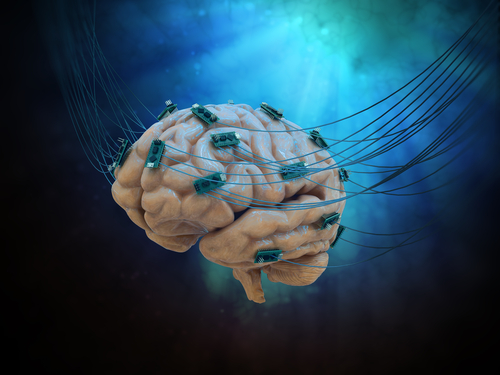Initial Results Of PROGRESS Trial Show Promise For Abbott’s Infinity DBS System

Abbott has announced promising preliminary results from the PROGRESS trial (NCT02989610) evaluating its Infinity Deep Brain Stimulation (DBS) System for the treatment of Parkinson’s disease.
The initial results, detailed in a press release, suggest that the DBS system achieved its primary goal of broadening the “therapeutic window” — the range of stimulation that relieves symptoms without causing adverse effects.
Deep brain stimulation (DBS) is an invasive surgical technique in which thin wires are implanted in the brain to deliver electrical pulses to certain areas and ease motor symptoms in patients for whom standard medications are not effective.
Abbott’s DBS system differs from others in that it’s designed to “steer” electrical current toward specific parts of the brain in order to lessen symptoms such as tremors. This differs from traditional “omnidirectional” systems, which don’t target specific parts of the brain. Because the stimulation is more targeted, the theory is that patients should be able to get meaningful symptom relief with less stimulation. The preliminary results support this idea.
The system also uses a wireless Apple consumer device that allows doctors to perform upgrades and optimize programming settings without the need for surgery.
“We now have the first release of data to confirm the benefits of this technology over traditional omnidirectional lead technology in expanding the therapeutic window for a majority of patients,” said Matthew Brodsky, MD, medical director of the deep brain stimulation program at Oregon Health and Science University and the primary investigator of the PROGRESS trial.
The initial results included data for 66 Parkinson’s patients who were evaluated after three months of using the DBS system. The majority (89.4%) had a wider therapeutic window — an average increase of 35% — accompanied by an average decrease of 30% in the amount of stimulation needed to attain a therapeutic effect compared with patients who were using a conventional “omnidirectional” system.
“In the PROGRESS trial, patients were assessed sequentially, receiving conventional stimulation followed by directional stimulation,” said Keith Boettiger, vice president of neuromodulation at Abbott.
“Despite being blinded to their stimulation type, twice as many patients preferred directional stimulation. Clinicians also preferred directional stimulation in four times as many patients, demonstrating that the Infinity system with our directional lead technology can help people find symptom relief more easily than systems with conventional stimulation,” he said.
The PROGRESS trial is set to include up to 235 patients being treated for Parkinson’s disease with electrical stimulation at 37 sites across seven countries.






